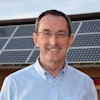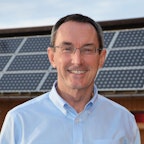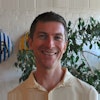Application of Air-to-Water Heat Pumps for Hydronic Heating & Cooling

About this course
This course satisfies the contractor training requirement set by the NYS Clean Heat program. You can submit this certificate of completion with your application to access the money for your customers. More details on page 53 of the program manual.
Ready To Sign Up Today? Click Here to Enroll
Learning Objectives
- To understand the benefits offered by modern air-to-water heat pump systems relative to other heat pump systems.
- To learn the technical details needed to successfully build heating and cooling systems around air-to-water heat pump systems.
- To explain the options and advantages of low temperature hydronic heating delivery systems when used with air-to-water heat pumps.
- To learn the advantages and available options for small scale chilled water cooling using air-to-water heat pumps.
- To see how air-to-water heat pumps can be combined with an auxiliary boiler to provide two stage heat delivery.
- To comprehend the operation of complete heating / cooling and domestic water heating systems that use air-to-water heat pumps.
This course is included in this bundle
Course outline
7 modules • 35 assignments • 8:02 hours of video lectures
Welcome • 2 assignments
Orientation Materials
- Set up email notifications and your student profile
- Introduce yourself on the discussion board
Module 1 • 7 assignments
Introduction & Brief History of Air-Source Heat Pumps
- Module 1 - Part A (17:56 minutes)
- Module 1 - Part B (40:20 minutes)
- Module 1 - Part C (15:18 minutes)
- Module 1 - Part D (15:22 minutes)
- Module 1 Part E (40:54 minutes)
- idronics #12 - Hydronics Fundamentals (.pdf)
- All Module 1 Presentation Slides (.pdf)
Module 2 • 8 assignments
Working With Air-to-Water Heat Pumps
- Module 2 - Part A (34:12 minutes) Preview
- Module 2 Part B (REV) (28:24 minutes)
- Module 2 - Part C (27:34 minutes)
- Module 2 - Part D (25:47 minutes)
- Module 2 - Part E (21:25 minutes)
- Module 2 - Part F (11:44 minutes)
- Module 2 (REV) all presentation slides (.pdf)
- (Module 2 Part D) Revised slide #100 (.pdf)
Module 3 • 4 assignments
Low-Temperature Heat Emitters & Distribution Systems
- Module 3 Part A (01:03:18 hours)
- Module 3 Part B (24:56 minutes)
- Module 3 all presentation slides (.pdf)
- heat emitter retrofit possibilities (.pdf)
Module 4 • 3 assignments
Small-Scale Chilled Water Cooling Using Air-to-Water Heat Pumps
- Module 4 Part A (the only part) (31:45 minutes)
- Revised slide 173 (.pdf)
- Module 4 all slides (REV 10-10-16) (.pdf)
Module 5 • 7 assignments
Example Systems
- Module 5 Part A (35:42 minutes) Preview
- Module 5 Part B (15:39 minutes)
- Module 5 Part C (09:03 minutes)
- Module 5 Part D (12:10 minutes)
- Module 5 Part E (11:10 minutes)
- Module 5 all presentation slides PDF (.pdf)
- Final Quiz
Conclusion • 4 assignments
Feedback and Additional Resources
- 1 Year of Access to Course Materials
- Feedback: 2-minute Exit Survey
- Consider Joining as a HeatSpring Member
- Certificate of Completion: Request a Certificate
Instructor
-
John Siegenthaler, P.E., is a mechanical engineering graduate of Rensselaer Polytechnic Institute, a licensed professional engineer, and Professor Emeritus of Engineering Technology at Mohawk Valley Community College. “Siggy” has over 40 years of experience in designing modern hydronic systems. He is a hall-of-fame member of the Radiant Panel Association, and a... Learn more


